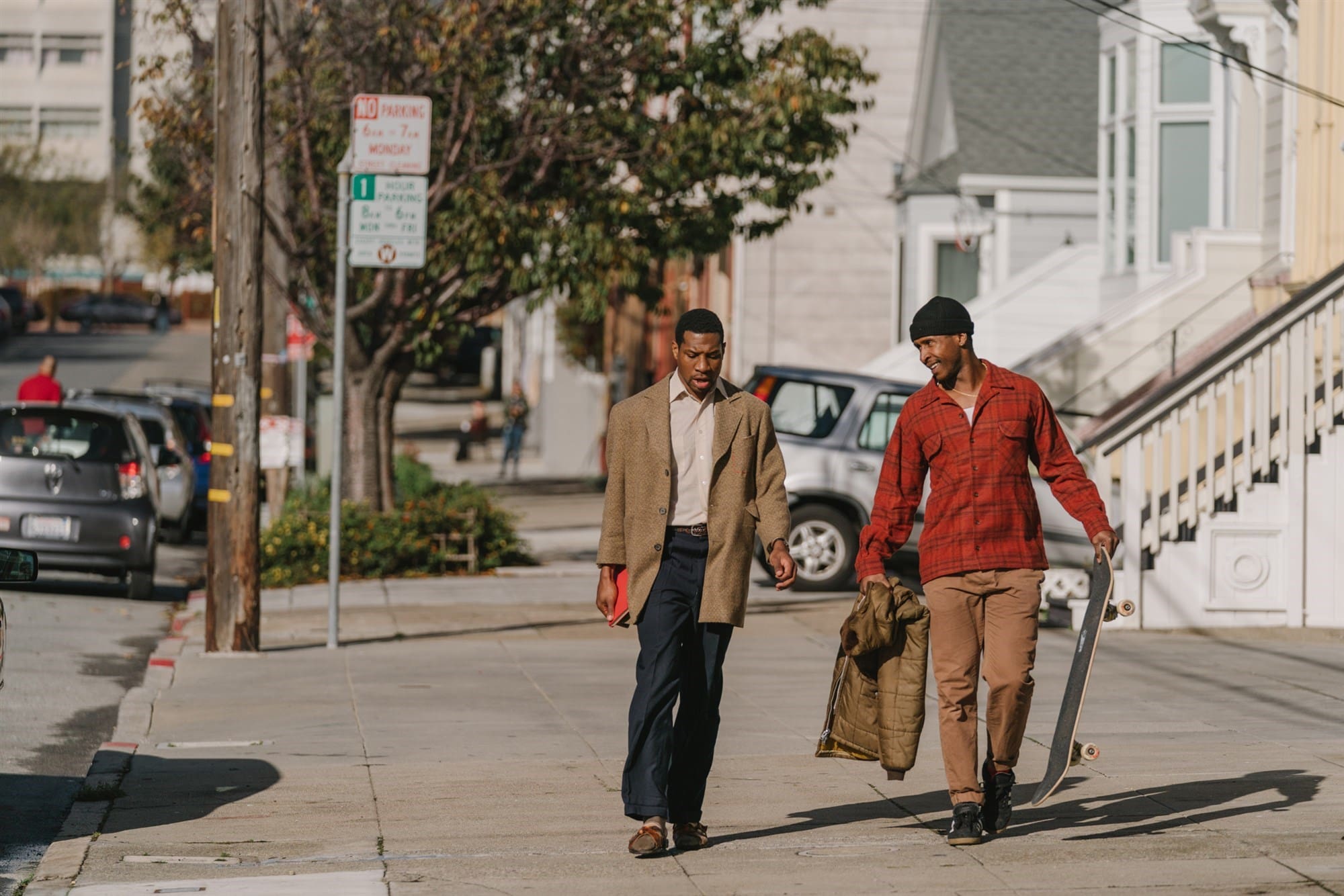
Written by Tom Moore
Back at this year’s Sundance Film Festival, studio A24 picked up a slew of films to distribute, but one film in particular that caught some buzz. It was based on a true story about the effects of gentrification in large cities and had an intriguing title,The Last Black Man in San Francisco, which sounds haunting just thinking about it. Not to mention, writer-director Joe Talbot received the award for Best Director and the film received a Special Jury Award for Creative Collaboration.
Thankfully, A24 has finally released the film so that audiences can experience one of the most moving, genuine, and intriguing films of 2019. From the cinematography, to the story, to the humor, you can tell that there’s clearly a desire to portray both its characters and the city of San Francisco as realistically as possible. The cinematography as this stunning vintage look and the work from cinematographer Adam Newport-Berra is just plain awesome to see. The grand shots of the city landscape are breath-taking and each shot makes it feel like you’re actually there.
Even for some of the characters in the film, it’s almost as if they’re real people that Talbot and writer Jimmie Fails actually met on the street or knew in life and it adds to the authenticity this film brings. The score from composer Emile Mosseri is one of the strongest aspects, though, as it perfectly highlights the highs and lows of the film. However, nothing is more genuine and real than the story of Jimmie (Fails) and Mont (Jonathan Majors).
While they might not come from much, Jimmie and Mont have goals and dreams that stem from their love for San Francisco. Jimmie aspires to regain his childhood home in a neighborhood that’s been gentrified and doesn’t reflect what the city used to mean to him. Monte aspires to create a play that reflects his views on the African-American culture that surrounds him as well as support Jimmie and his blind grandfather Allen (Danny Glover). Together, the two men find a deeper strength in their friendship, what San Francisco really means to them,and truths that will change their views forever.
Excellently portrayed through Fails’ performance, Jimmie’s need to reclaim his childhood home that was built by his grandfather is easy to connect to. Often times, we are made to see characters like Jimmie being obsessive and creepy, but here, Jimmie is portrayed in a much sadder light, with him only coming back to the house to keep it because it’s the last beacon of his family’s legacy in the city. With Mont as his only support, Jimmie’s journey has this sense of desire that tugs right at viewers’ heartstrings and is highlighted even further through his friendship with Mont.
Majors’ performance is easily one of the best aspects of the film, as you can really feel his care for those around him and his love for expression really hits you hard. His performance will easily touch viewers on a whole new emotional level and he securely places himself as an early contender for best supporting actor awards.The two of them have incredible chemistry and highlight some of the more genuine comedy beats throughout most of the film.
Rather than jokes that set-up punchlines or comedy that’s for isolated moments, Talbot and Fails blend humor with the dialogue in a way that comes off very natural. The humor continuously builds relationships and establishes a sort of grounded nature because of its strong delivery. Every humorous line or sequence is presented like family and long-time friends joking with one another and it makes the relationships more believable and easier to connect to.
Especially with other relationships, like Mont’s with his grandfather and Jimmie’s with his aunt, Wanda (Tichina Arnold), the humor strengthens the bond viewers will have with them even if they aren’t on-screen as much. Glover and Arnold put in top notch performances, as well as Mike Epps as another friend of Jimmie’s dad, and all of them build Jimmie and Mont’s journey. All of this not only makes the film come off as authentic, but also makes you care about everyone when things stop being comedic and start getting real.
Jimmie’s story is really just one of many of those who face the effects of gentrification<. What makes The Last Black Man in San Francisco such a strong examination of this developing issue is that it doesn’t attempt to point fingers to blame anyone for it. There’s no moment where Jimmie is shown to be completely wrong for his desire to return home, even after he learns that what he believes about the house might not exactly be true, or where Clayton (Finn Witrock), a real estate agent who represents the house, is portrayed as this vindictive villain. The film portrays the issue more realistically as viewers will really be emotional to the frustrations, loss of culture, and sense of sadness everyone in the film feels. There’s truly a build-up of emotion that<
The Last Black Man in San Francisco is truly an authentic look at those affected by gentrification and if you have the chance to see it, I can’t recommend it enough. Although its awards chances are slim with it coming out so early in the year, hopefully this film can garner the recognition it absolutely deserves and Talbot and Fails will be two people we will hear from soon.

